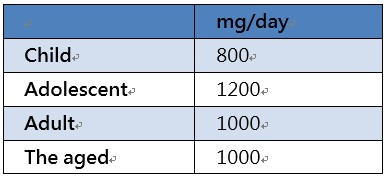Stay Informed
Aftercare Education Articles
Osteoporosis 骨質疏鬆症
2016-11-06
Definition
Osteoporosis is the decrease of bone mass making originally dense bones become porous, fragile, and thin; and bone loss decreases even faster after women have menopause.
Symptoms
There is no symptom for bone loss and most people do not know that they have osteoporosis. People with osteoporosis often suffer from bone fractures especially in radius, ulnus, femur, and spine. Some obvious symptoms are back ache, shortened height, and gradual hunchbacks. Severe conditions include spinal deformity and unchangeable position at times. Morbidity ratio for men and women is 1:4.
Risk factors of osteoporosis
Women over 70 with family history, menopause, oophorectomy, endocrine disease, poor nutrition, insufficient calcium intake, inadequate exercise, long term bed-ridden, alcohol overdose, caffeine overdose, cigarette addiction, and long term medication like anticonvulsants, thyroxin, and steroid are at higher risk of getting osteoporosis.
Prevention of osteoporosis
-
Diet:
(1) Intake more dairy products like cheese and yogurt. Start with small amount like 30-50 cc of milk or low lactose milk if you have diarrhea with milk drinking.
(2) Eat foods containing bone or cartilage such as dried fish, dried shrimp, calm, oyster, or salmon and sardines canned foods.
(3) Consume more vegetable foods such as beans, dark green leafy vegetables, kelp, laver, sesame and cereal with calcium. They are all rich in calcium and suitable for vegetarian.
(4) Add vinegar or lemon when stewing and decocting bones to facilitate calcium releasing.
(5) There is much phosphate in meat, so do not consume too much meat to prevent decreased calcium absorption and to facilitate calcium output via urine.
(6) Avoid alcohol overdose because it affects calcium absorption; or tobacco smoking, and tea and coffee consumption. Add fat free milk to replace coffee mate; keep coffee consumption under a cup a day.
(7) Before any calcium tablets intake, discuss with your physician. Keep it under 500-600 mg a time and less than 1500 mg a day. It aids calcium absorption when calcium tablets are combined with Vitamin D. Sometimes calcium tablet could cause constipation and abdominal fullness, drink more water before taking it. Avoid taking calcium tablets after other medicine, two hours apart is highly recommended.
(8) Take 400-800 I.U vitamin D a day. There is much vitamin D in cod liver oil, milk, vitellus, saltwater fish and liver.
(9) Take adequate manganese (in nuts, beans, rice and dark green vegetable), copper (in nut, rice, beans, internal organs, meat, egg and seafood), and zinc (in seafood and vitellus) to increase bone growth.
Note: If you have hypercholesterole-mia, keep vitellus intake under 3 a day.
(10) Intake adequate vitamin C. because collagen formation needs vitamin C to strengthen bones. Besides, vitamin C increases calcium absorption in intestine. Rich in vitamin C foods are orange, guava, kiwi and other fresh vegetables.
(11) Take adequate soy bean goods during menopause: isoflavin resembles female hormone, and it can prevent bone loss.
(12) Daily calcium intake

-
Adequate exercise:Takes 30-60 minutes a day for outdoor exercise like cycling, swimming, jogging, playing balls and walking. Work-out activates Vitamin D to increase calcium absorption, strengthen bones, and stimulate bone tissue growth.
-
Daily life preventions:(1) Adequate weight maintenance:(2) Exercise increases the flexibility of muscles and joints which is helpful for coordinating body and preventing falling.(3) Improve home environment:(4) It is necessary to have sufficient light and keep toilet and staircase dry to prevent falling. Install cushion to prevent slipping and add balustrade to cease falling.
中國醫藥大學附設醫院
連絡電話:(04)22052121分機 3207
若有任何疑問,請不吝與我們聯絡
Back
Copyright ©2025 All Rights Reserved
Designed By
中國醫藥大學附設醫院 智慧雲端多媒體中心
本網站內容屬中國醫藥大學附設醫院所有,一切內容僅供使用者在網站線上閱讀,禁止以任何形式儲存、散佈或重製部分或全部內容
